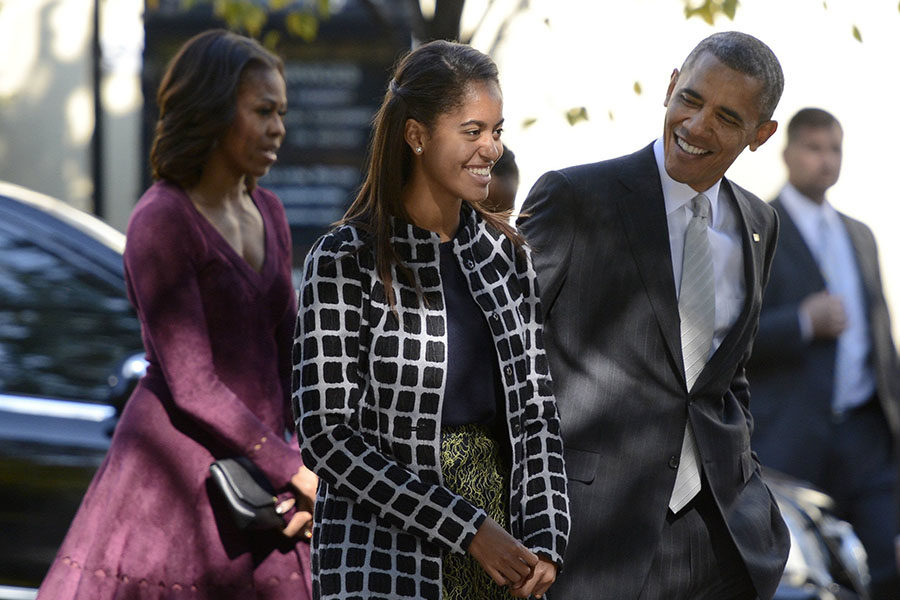Students Should Consider A Gap Year
The common misconception that gap years aren’t valuable can hinder a student’s choice of what to do immediately after graduation.
PHOTO | Tribune News Service
President Barack Obama talks with his daughter Malia, center, as the first family walks from St John’s Church.
Next fall, approximately 2 million high school seniors across the country will embark on their journey to the best four years of their lives: college. Of those 2 million, 80 percent of them will enter as an “undecided” major, according to NBC News. While there’s nothing wrong in declaring “undecided,” it can be intimidating to enter this crucial time without an idea regarding what to study. As students are preparing college applications and writing supplemental essays, it’s not a bad idea to consider a gap year. After all, it’s nothing more than an option.
Fifty percent of college-bound students change their major at least once, if not two or three times, according to NBC News. Not only is this a frustrating process, but it is also a costly one. Indecisiveness can be an issue when students are changing majors or programs, especially in terms of cost. While some would argue that trial and error is part of the process, it’s very difficult to financially support decisions like these.
Taking a gap year doesn’t mean one will not return to higher education. However, it does take organization and planning. One TIME article, through an example of one family’s experience, recommends applying to college on time, then deferring acceptance. Then, it requires a structured idea of what a student’s time off is going to look like, whether it be working, traveling or volunteering. There are many gap year programs that can give students options, rather than spending their time on the couch.
From the beginning of high school, students are in a constant cycle of standardized tests, essay writing, late nights of studying and hundreds of seemingly random assignments that work toward a common goal: college acceptance. This shouldn’t be the case; college right after graduation isn’t always the best option for everyone. Time off from school and rigorous education can be a relief on students who live in a constant state of stress. Even a semester or year away from worrying about GPA and test scores can be a therapeutic, liberating time.
In addition to a break from anxiety-ridden academics, gap years provide students with a time to genuinely understand themselves, a time to process his or her own life. They can reevaluate their goals, interests and much more. Gap years allow one to embrace the world; it’s an opportunity for self-discovery so that young adults have a chance to explore genuine passions without restraints before returning to higher education. The possibilities are endless, but the majority of those who do participate in gap years reap similar benefits, according to The New York Times.
A prominent example is Malia Obama, a student at Harvard University this year. Before her freshman year, Obama took a gap year to intern at a movie company in New York. The common fear that students will not return to college after a gap year is disproved in Obama’s case, as well as the statistic that 90 percent of students return to school within a year, according to American Gap Association.
High schools should present gap years in the same way that college is presented to students and work to end the negative stigmas. Students should not feel pressured into attending college right after graduation if it’s not right for them. The experiences to be gained from travelling, working and volunteering is not comparable to those imposed on students in a classroom.



